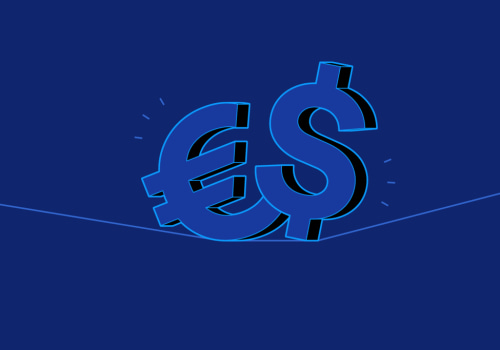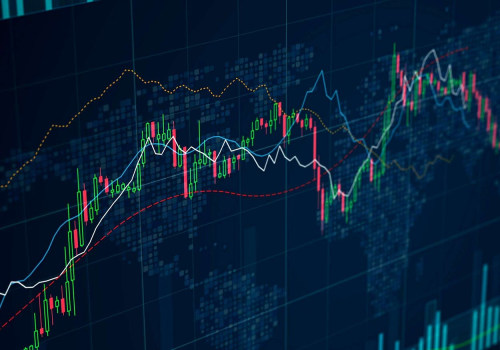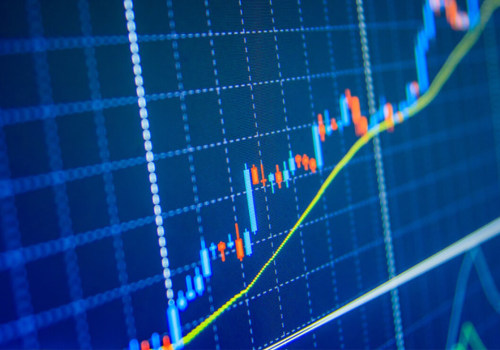Are you considering investing in binary options? One of the most important considerations when choosing a broker is the minimum deposit requirement. It's essential to find out what the broker's minimum deposit is before signing up and committing to a long-term trading relationship. This article will explain the different types of minimum deposits, and what you should look for when selecting a broker. The minimum deposit is the smallest amount of money that a trader must deposit in order to open an account with a broker. Depending on the broker, the minimum deposit can range from as low as $10 to hundreds or even thousands of dollars.
Different brokers have different requirements, so it's important to do your research before selecting a broker. At first, the idea of having to deposit a large sum of money may seem daunting, but there are some advantages to having a larger initial deposit. For example, some brokers offer special bonuses and promotions for traders who make larger deposits. Additionally, having a larger initial deposit may give you access to more features and higher levels of service from your broker. In this article, we'll discuss the different types of minimum deposits available and what factors you should consider when choosing a broker. We'll also provide some tips on how to make sure that you get the best deal possible.
Minimum Deposit
is the amount of money required by a broker before you can trade with them.It is an important factor to consider when getting started with binary options, as it will determine how much money you need to make your first trade. Minimum deposits can vary widely, depending on the type of broker you use and the specific terms and conditions associated with their services. When looking at minimum deposits, there are several types you may encounter. Fixed amounts are a set amount of money that must be deposited in order to open an account.
This type of deposit is often used by brokers who require a certain level of commitment from their traders. Percentage-based deposits are another common type of minimum deposit, where the amount required is based on a percentage of the total amount you wish to invest. Some brokers may also offer ‘no-deposit’ bonuses, which allow you to start trading without making a deposit. These bonuses are often limited in scope and may come with strings attached, such as having to make a minimum number of trades or meeting a certain turnover requirement.
It is important to read the terms and conditions carefully before signing up for any type of bonus. Each type of minimum deposit has its advantages and disadvantages. Fixed amounts provide more certainty in terms of what you will need to deposit, while percentage-based deposits can help you save money on larger investments. No-deposit bonuses can be attractive, but they may also be limited in scope or have other conditions attached.
Fees
associated with deposits can also be an important factor to consider.Processing fees may be charged by some brokers, while exchange rate fees may also apply if you are dealing in different currencies. It is worth researching different brokers and comparing their fees before making your decision. When selecting a broker, there are several other factors to consider beyond the minimum deposit requirement. These may include the features offered by their trading platform, customer service support, and payment options available.
It is important to research each broker thoroughly before making your choice. In conclusion, minimum deposits for brokers are an important factor to consider when getting started with binary options. Different types of minimum deposits come with different advantages and disadvantages, and it is important to read the terms and conditions carefully before signing up with a broker. Additionally, fees associated with deposits should be taken into consideration, as well as other factors such as trading platform features, customer service support, and payment options. By taking all these factors into account, you can find the right broker for your needs.
What is a Minimum Deposit?
A minimum deposit requirement is a specific amount of money that a broker requires a trader to have in their trading account before they can begin trading.This amount can vary from broker to broker, and is typically set by the broker based on the type of account that the trader wishes to open. Generally, the higher the minimum deposit requirement, the more features and trading options that are available to the trader. Minimum deposits can range from as low as a few dollars for some brokers, up to tens of thousands of dollars for others. The minimum deposit requirements can also differ depending on the type of account that the trader wishes to open.
For example, most brokers offer different account types, such as a standard account, a VIP account, or an Islamic account. Each of these accounts will have different minimum deposit requirements. In addition to the minimum deposit requirement, some brokers may also require traders to meet certain conditions before they can start trading. These conditions may include proof of identity, proof of address, and other documents. It is important to check with your broker in advance to find out what their requirements are before you make your first deposit.
It is also important to understand that a minimum deposit requirement does not necessarily mean that a trader must have all of the money available in their account before they can start trading. In some cases, traders may be able to use leverage or margin in order to trade larger amounts than they have in their accounts. However, it is important to understand the risks associated with using leverage or margin before engaging in such activities.
Factors to Consider When Choosing a Broker
When choosing a binary options broker, there are several factors to take into consideration. The most important factors to consider include the trading platform features, customer service, and payment options.Trading Platform Features – The trading platform features offered by the broker should be examined closely. For instance, it is important to determine if the broker offers a variety of asset classes to trade, such as currencies, stocks, indices, and commodities. Additionally, a trader should review the types of orders the broker offers, such as market orders, limit orders, stop orders, and trailing stops. It is also important to make sure the broker has a user-friendly trading platform that is easy to navigate.
Customer Service
– When choosing a broker, it is essential to take customer service into consideration.A broker that provides excellent customer service will be able to answer all of your questions and provide assistance when needed. The availability of customer service should also be assessed. The best brokers will offer 24/7 customer service in multiple languages.
Payment Options
– Another important factor to consider is the payment options offered by the broker. It is important to make sure that the broker you choose offers a secure and reliable payment option for deposits and withdrawals.Additionally, it is important to determine if there are any fees associated with the payment options and if there are any minimum deposit or withdrawal amounts required.
Types of Minimum Deposits
Minimum deposits for brokers can come in different forms. The most common include fixed amounts, percentage-based deposits, and no-deposit bonuses. A fixed amount is a pre-set sum of money that you must deposit into your account in order to begin trading. This amount can vary from broker to broker, but is usually around $100 or more.This type of minimum deposit is ideal for those who are looking for a low-risk way to get started with binary options. A percentage-based deposit is a deposit requirement that is based on a percentage of the total amount of money you wish to trade. This means that if you wish to trade $1000 worth of binary options, the broker may require you to make a 10% deposit, or $100. This type of deposit can be beneficial for those who are looking to invest larger amounts of money but want to limit their risk. Finally, a no-deposit bonus is an offer that some brokers provide in which they will give you a certain amount of money to start trading without requiring any initial deposit. These bonuses can be great for those who are just starting out and want to test the waters before committing any money.
However, be aware that these bonuses often come with strings attached, such as making a certain number of trades before you can withdraw your money.
Fees Associated with Deposits
When you are considering making a deposit with a binary options broker, it is important to be aware of any fees associated with the deposit. This includes processing fees, exchange rate fees, or any other fees that the broker may charge. In some cases, these fees can be quite substantial and can add up quickly if you are making multiple deposits. Processing fees are charges that are imposed by the broker for processing your deposit.These fees can range from a few cents to several dollars depending on the broker. Exchange rate fees are imposed by the broker when you make a deposit in a currency other than your own. These fees can also vary greatly depending on the broker and the currency you are depositing. It is important to research the fees associated with deposits before choosing a broker.
Many brokers offer different types of accounts with different levels of fees associated with them. Some brokers may offer lower processing fees for larger deposits, or may waive certain types of fees altogether. It is important to read through the terms and conditions of each account before deciding which one is best for you. You should also be aware of any additional fees that the broker may charge, such as inactivity fees or account maintenance fees.
Be sure to read through the fine print and ask questions if there is something you don’t understand. It is always better to be safe than sorry when it comes to investing your money. To avoid paying unnecessary fees, it is important to do your research before selecting a broker. Compare the different brokers and their associated fees to find the best option for you.
Additionally, try to find a broker that offers discounts or promotions on deposits or other services. This can help you save money in the long run. In summary, minimum deposits for brokers are an important factor to consider when getting started with binary options trading. Be sure to research the associated fees before making a deposit and look for ways to avoid unnecessary costs.
With proper research and planning, you can find a broker that fits your needs and helps you reach your financial goals. In conclusion, it is important to understand the minimum deposit requirements of binary options brokers before you commit to trading. Different brokers have different types of deposits and associated fees, so it is essential to do your research and find a broker that fits your needs. Factors to consider include the type of deposit, fees associated, customer service, and the platform’s security and features. Ultimately, finding the right broker for you comes down to understanding your specific needs and finding the broker that best meets them. If you need additional help in finding the right broker for you, there are several resources available online.
From comparing different brokers’ fees and features to reading reviews from experienced traders, you can find all the information you need to make an informed decision.






